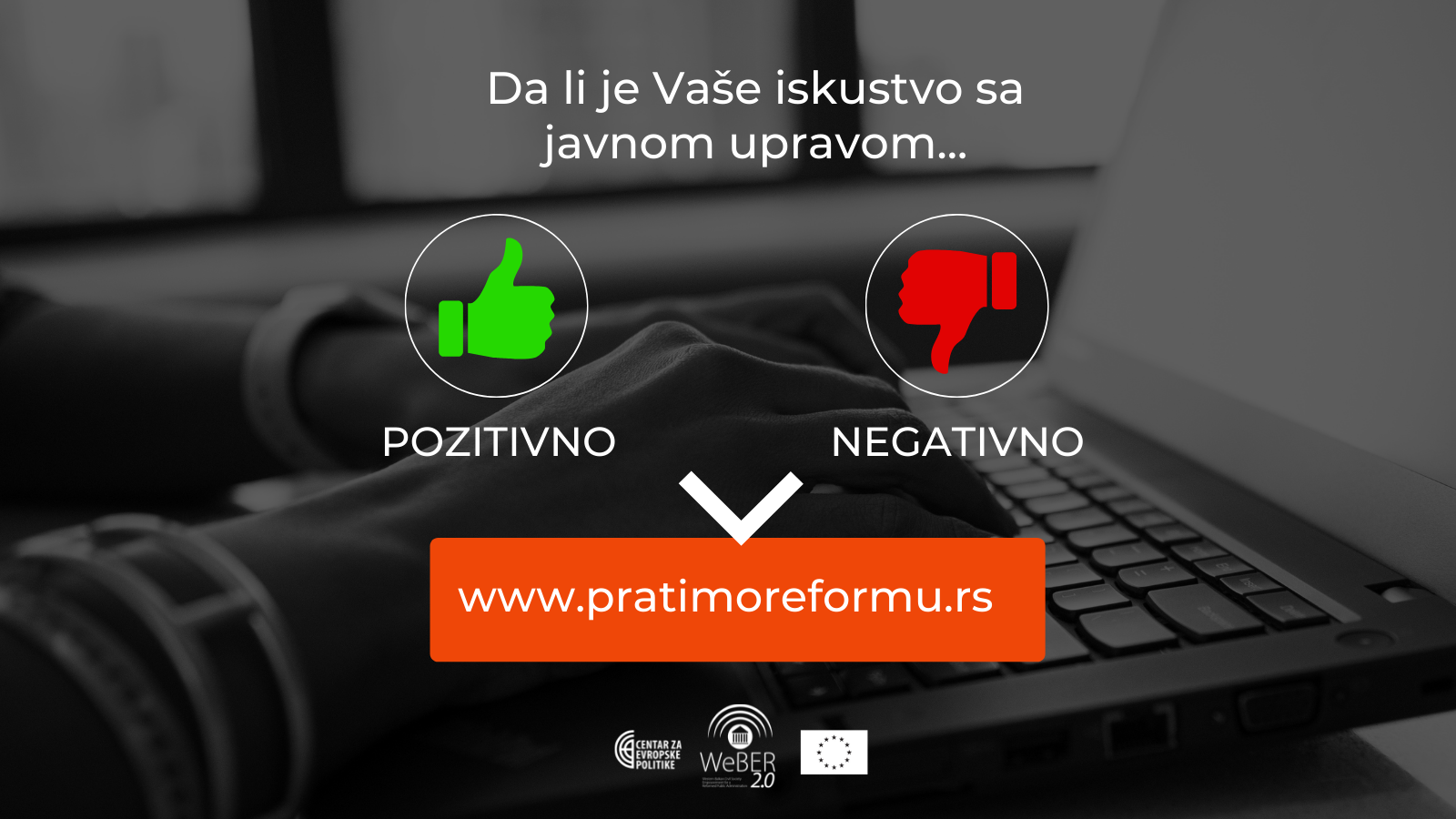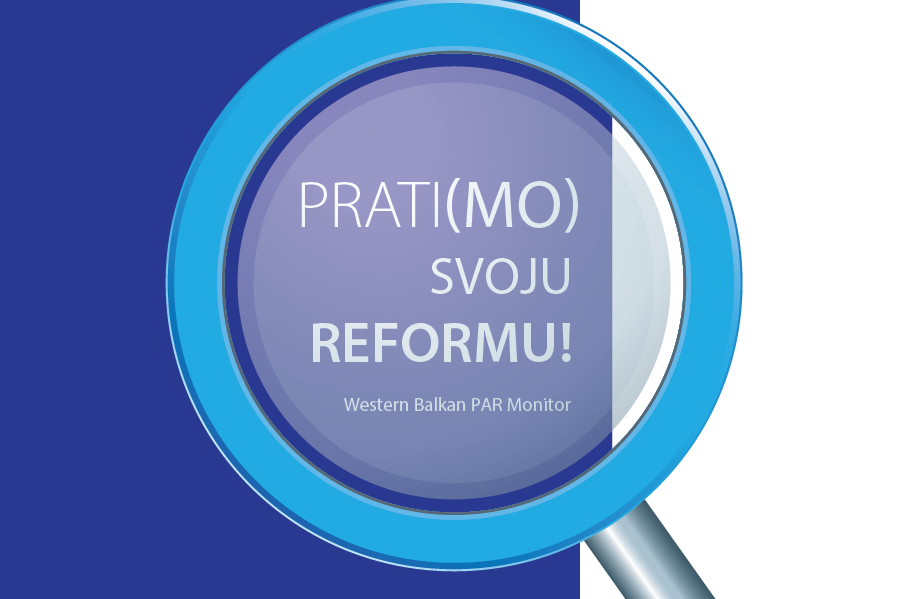User experience is very important in developing good services. The citizens of Serbia have recently had the opportunity to assess the level of service within the public administration system.
Milena Lazarević, a programme director at CEP, says that the inspiration for launching the portal www.pratimoreformu.rs was drawn from the need of all of us to have a unique online “spot” where we can leave feedback about public administration – everything that bothers us, everything that we are not content about, as well everything we like and where we see progress.
“Whether our experience with the administration is positive or negative, we need to raise awareness that administration is there to serve its citizens and that the way and quality of its operations concern all of us. Among other things, because we finance it as taxpayers and we are superior to it. Despite the digitalisation and development of electronic services, individuals still encounter long queues and often visit several locations to perform one activity or obtain one document. The feeling that you are at the mercy of the counter clerk with us is normalised, as if it should be like that and as if there is no other way.”

Lazarević emphasised that it is important to create a feeling among citizens that they are not alone, that there are ways for their voice to be heard and for their problems to be further communicated.
“The portal is our contribution in the form of additional influence on the public administration, for it to be more focused on the users of administration services, and to hear their problems. The more we participate in initiatives like this one, the greater the pressure will be to change the administration for the better, and as a consequence, these changes will make our communication with the administration easier, faster and thus cheaper and more efficient.”
Miloš Đinđić, the lead researcher on the project, singles out the visibility of citizens’ experiences in the first place in terms of importance on the portal.
“On our portal, in the category “Experiences of others”, citizens can see that they are not alone and that others share similar problems. Anonymity is guaranteed because we want to ensure that citizens openly share with us what they think about the work of public administration. The idea that citizen feedback is publicly available also implies that institutions with which citizens have had a positive experience should be publicly praised and that aspects of government work that citizens are dissatisfied with are also clearly visible, thus creating pressure for change and reforms.”

Đinđić says that the results will be shared via social media and presented to the public and media. “In a concise way, information will be conveyed about what citizens are most satisfied with, what problems they most often face and what complaints they have. This will put pressure on decision-makers. Constructive recommendations based on experience will advocate for improvements. ”
The portal is part of the Western Balkans Civil Society Empowerment for Reformed Public Administration (WeBER2.0) project, which is dedicated to strengthening participatory democracy through greater civil society engagement in policy development and implementation of public administration reforms in the Western Balkans. The project is implemented by the European Policy Centre (CEP), in cooperation with partners from the regional Think for Europe Network (TEN). The project is financially supported by the European Union.

The European Union is helping Serbia through the development of electronic portals and services that are the foundations for the efficient functioning of public administration. The EU has helped to establish eGovernment by creating institutional preconditions, donating equipment, creating centralised database registers and developing the eGovernment portal itself. The EU financed the development of the Public Procurement Portal with EUR 3.2 million.
The support of the European Union for the reform of public administration in Serbia has amounted to more than EUR 200 million since 2000. Funds allocated for public administration are used for the professionalisation of administration, development of electronic services, management of public finances and improvement of the work of local self-governments and independent institutions.
Public administration reform is one of the most important elements of Serbia’s EU accession process, and in 2014 it was put at the forefront of negotiations. Modern and professional public administration is a key element for each EU member state to effectively enforce laws and to manage EU funds transparently.
Watch the Paperless Administration video story




